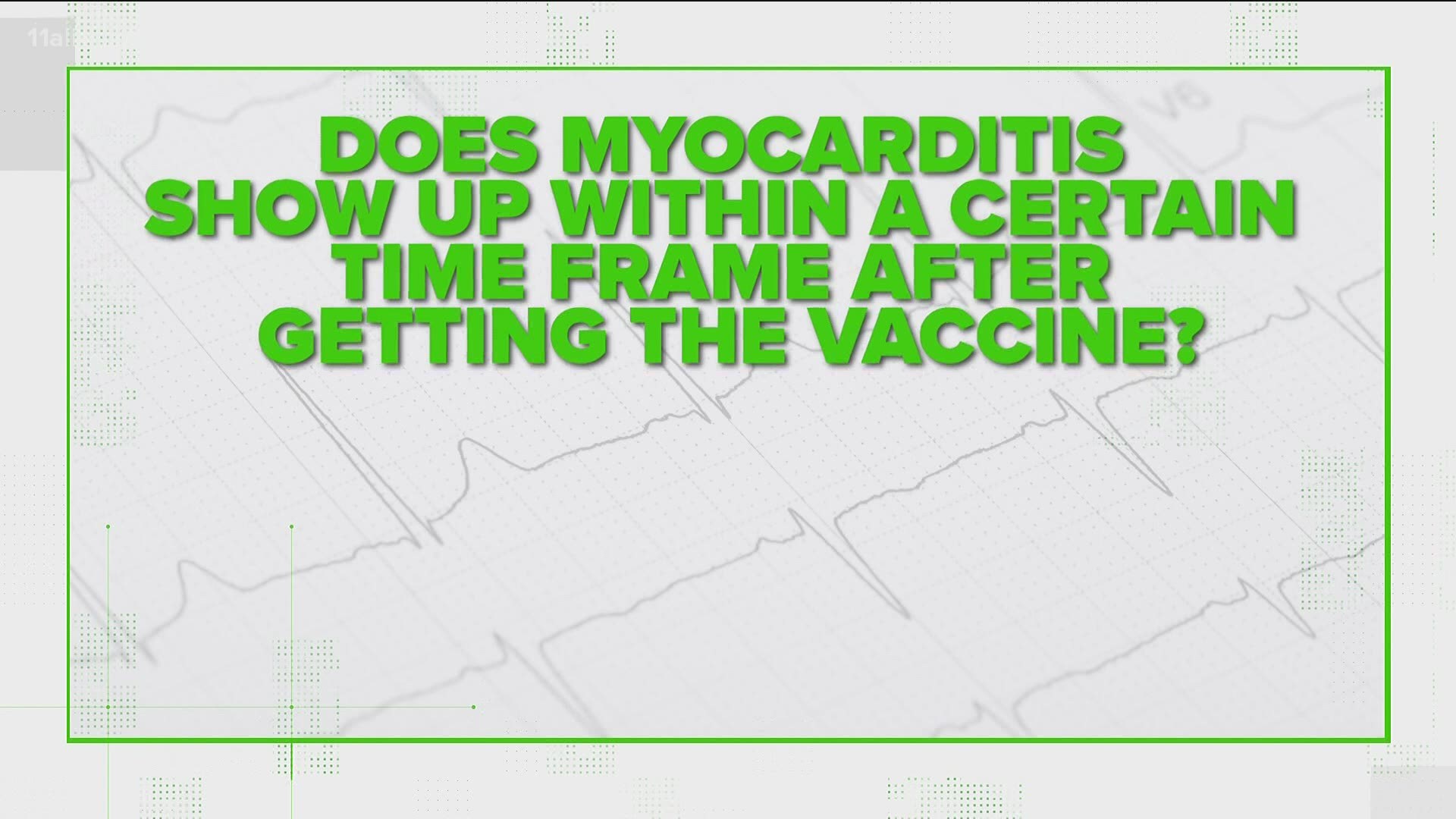The Centers for Disease Control and Prevention's vaccine advisory committee will hold an emergency meeting to discuss the rare cases of heart inflammation happening in some young people after getting the COVID-19 vaccine.
The meeting originally scheduled for June 18 is now postponed until next week due to the Juneteenth holiday. Experts are expected to cover the latest research and safety data on myocarditis after the vaccine following more than 300 confirmed cases in young people.
In Georgia, the Department of Public Health confirmed to 11Alive health officials are investigating ten suspected cases.
"These cases are rare and the vast majority have fully resolved with rest and supportive care," CDC Director Dr. Rochelle Walensky said Thursday during a White House briefing, adding that more than 20 million young people and adolescents have received the COVID-19 vaccine to date.
The VERIFY team is tracking questions when it comes to symptoms of the condition. Tanya emailed asking about the signs of the condition and how soon symptoms appear after getting the vaccine.
THE QUESTION
Does the heart condition myocarditis show up within a certain time frame after getting the COVID-19 vaccine?
THE ANSWER
Yes, symptoms of chest pain connected to to the rare cases most often appear within days of getting the vaccine.
WHAT WE FOUND
"We do know that this still is rare given the number of vaccine doses that have been given," Dr. Preeti Jaggi, a pediatric infectious disease physician at Children's Healthcare of Atlanta, emphasized.
Still, Dr. Jaggi and doctors across the country have the issue on their radar after early data from the CDC indicated a higher than usual number of cases of myocarditis in young adults after getting the mRNA vaccine.
According to that data, the majority of myocardits cases were reported in young men following their second dose of either the Pfizer or Moderna vaccine.
"There are some patients that have had it after the first dose but definitely more common after the second dose," Dr. Jaggi said. "So if you hear about some of those symptoms pretty soon after that second dose of the vaccine that would be something to consider new blood to seek medical care."
Symptoms of myocarditis can include fever and fatigue, as well as shortness of breath and a very specific type of chest pain.
Dr. Tom Shimabukuro, deputy director of the CDC's Immunization Safety Office, presented the CDC data to an FDA panel on June 10. As Dr. Shimabukuro explained, symptoms typically showed up within two to three days after getting the vaccine. Symptoms also appeared sooner after the second dose than the first, with chest pain the most commonly reported symptom for those under 30.
While the severity of myocarditis cases vary, the CDC reports most people respond well to treatment.
Experts also point out the heart condition is sometimes caused by viral or bacterial infections, which is why the CDC has to investigate each reported case to confirm diagnosis.
"It's definitely something that we saw prior to the pandemic, especially in the summer months, and a variety of different illnesses can cause that," Dr. Jaggi said.
To date, a link between the COVID-19 vaccine and cases of myocarditis has yet to be determined. For now, health officials including the CDC continue to recommend COVID-19 vaccinations for everyone ages 12 and older, citing "the greater risk of other serious complications related to COVID-19, such as hospitalization, multisystem inflammatory syndrome in children (MIS-C), or death."
Our Verify team is here to fact-check claims being shared in the community and online. Fill out the form below with something you'd like us to Verify.

